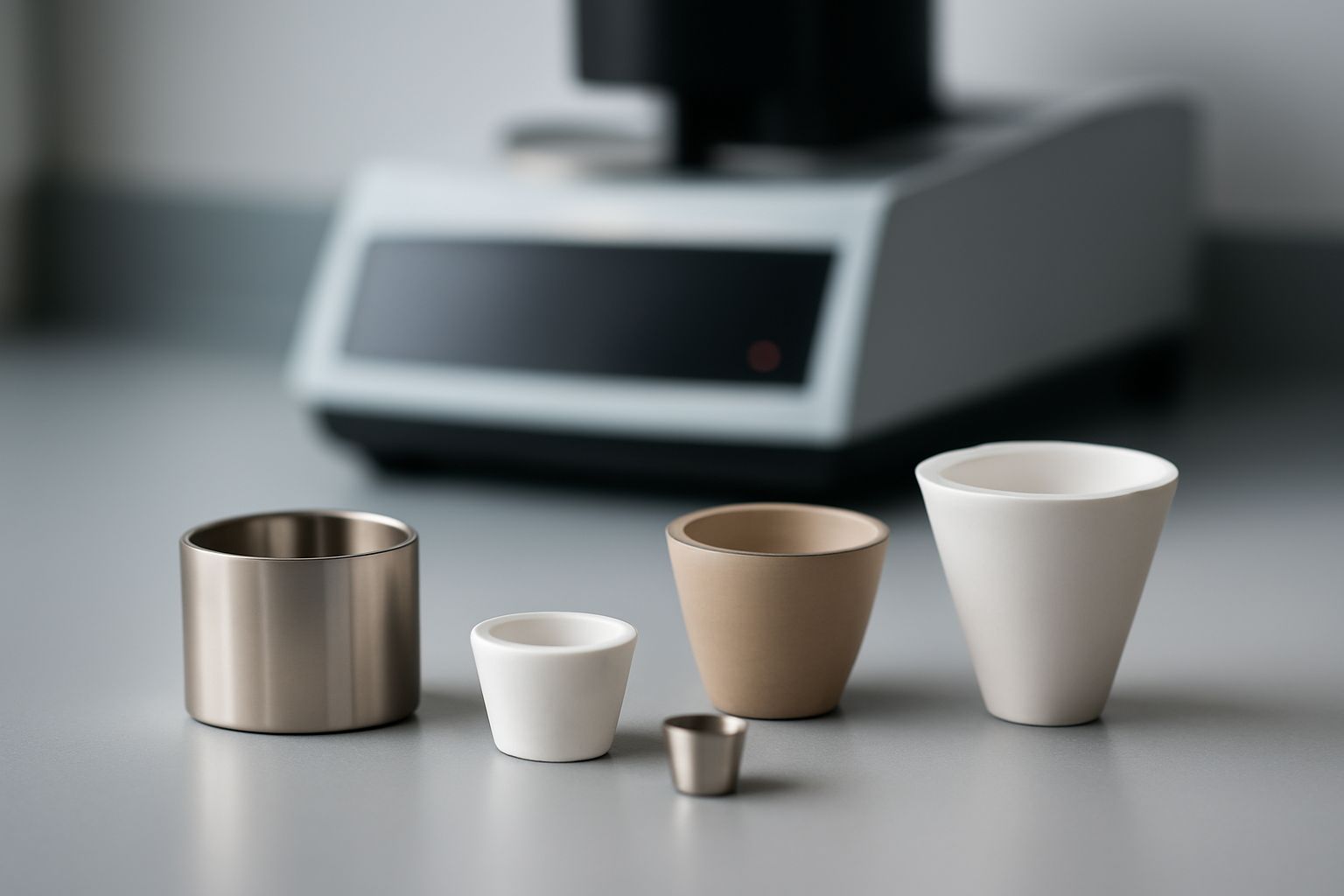Your cart is empty.
shop now
Your cart is empty.
shop now
Picking the wrong crucible for your thermal analysis wastes budget and produces inconsistent results. Many labs overlook critical performance features when selecting a crucible for a new application.
To choose the best reusable crucible for any scenario, match the crucible’s material and design to your thermal analysis needs. For high temperatures, use platinum or boron nitride. For corrosive samples, choose platinum. High-pressure environments need stainless steel. Small quantities perform best with micro-crucibles.

Through many years in materials and pharmaceutical testing, I have seen that the best results come from tailored setups. You must consider temperature, chemical reactivity, and sample amount. Below, I share how to select the ideal reusable crucible for each scenario, including options from CeramXpert, Rd Mathis, CS Ceramic Co.,Ltd, and WelchLab.
High-temperature testing can lead to pan warping, signal drift, or sample loss with standard containers. Labs that use unsuitable materials risk damage to costly equipment and invalid results.
For high-temperature analysis, platinum and boron nitride offer superior resistance. Platinum can handle up to 1700°C and is chemically inert, while boron nitride can go beyond 2000°C and has high thermal conductivity.
| Material | Max Temp (°C) | Key Properties | Best Use | Reference |
|---|---|---|---|---|
| Platinum | 1700 | Chemical inertness, strong heat conduction | DSC, TGA, API analysis | CS Ceramic Co.,Ltd |
| Boron nitride | 2000+ | Non-stick, very high conductivity | Metals R&D, molten sample work | Rd Mathis, CeramXpert |
I always recommend reviewing thermal limits and inertness for your instruments and methods. Platinum gives unmatched stability for high purity testing, while boron nitride works when nothing else survives the extreme heat or aggressive process environment (ScienceDirect).
Thermal analysis with corrosive samples often results in early crucible failure or irreproducible results if you choose the wrong material. This challenge leads to higher costs and failed tests.
Alumina tolerates weak acids and most organics, making it cost-effective. Platinum resists almost all acids and oxidants, perfect for strong or unpredictable chemistries.
| Material | Chemical Resistance | Longevity | Typical Use | Resource |
|---|---|---|---|---|
| Alumina | Moderate, not for HF or alkali | High (basic chemicals) | Routine TGA, lower-cost pharma | WelchLab |
| Platinum | Very high (most acids/bases) | Very high | Harsh acid, validation studies | CS Ceramic Co.,Ltd, Rd Mathis |
I choose platinum for direct API testing or corrosive stability studies. When lab budgets require, alumina works if the chemical system is mild. Always check for new reactivity with each sample batch; reference chemical compatibility before purchases (Chemical inertness).
Standard ceramic or precious metal crucibles often deform or rupture in high-pressure testing, creating serious safety issues and leading to repeated failures or equipment loss.
Stainless steel crucibles offer mechanical strength and are suitable for controlled high-pressure thermal analysis. They resist pressure-based distortion and allow modifications for custom lab requirements.
| Crucible Type | Pressure Resistance | Suitability | Limitation | Reference |
|---|---|---|---|---|
| Stainless Steel | Very high (>100 bar) | High-pressure synthesis, sealed TGA | Not for strong acids, moderate temp | CS Ceramic Co.,Ltd |
| Platinum | Low to moderate | Atmospheric, basic pressure | Deforms under very high pressure |
I recommend stainless steel for any pressure test beyond standard TGA/DSC setups. Work with suppliers like Rd Mathis and CeramXpert to ensure the fitting matches lab equipment and safety rules (Pressure vessel).
Many labs struggle to get accurate results with trace samples, using standard-size crucibles that reduce signal-to-noise and waste precious materials.
Micro-crucibles, made from alumina or platinum, improve thermal sensitivity and make high-precision, low-mass testing possible. These vessels provide fast, even heating and lower detection limits for fine material analysis.
| Material | Volume (μL) | Precision Level | Best Use | Supplier |
|---|---|---|---|---|
| Platinum | 5 – 30 | Very high | Trace API, pharma QC | CeramXpert, Rd Mathis |
| Alumina | 10 – 40 | High | Routine analysis, teaching labs | CS Ceramic Co.,Ltd, WelchLab |
I ask for detailed technical drawings before micro-crucible orders. Consistent wall thickness and precision fit with thermal analysis equipment are key to success. Leading suppliers offer validated test data (Microanalysis).
Matching the reusable crucible to the specific scenario ensures the best thermal analysis results and reduces costly errors. Consulting suppliers with proven technical expertise improves lab performance every time.
Contact technical support: info@redthermo.com